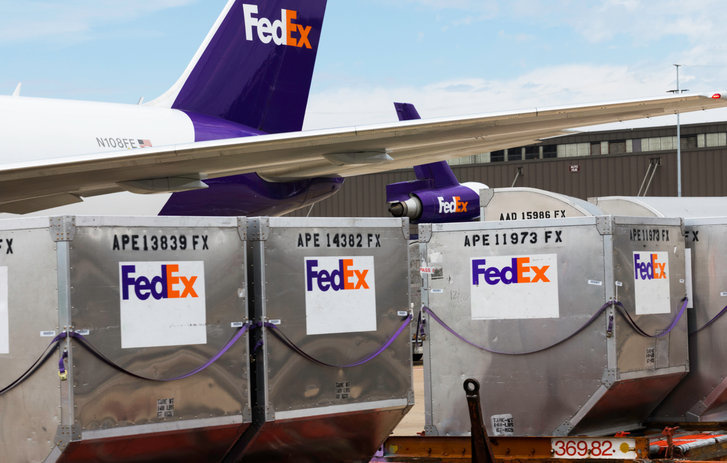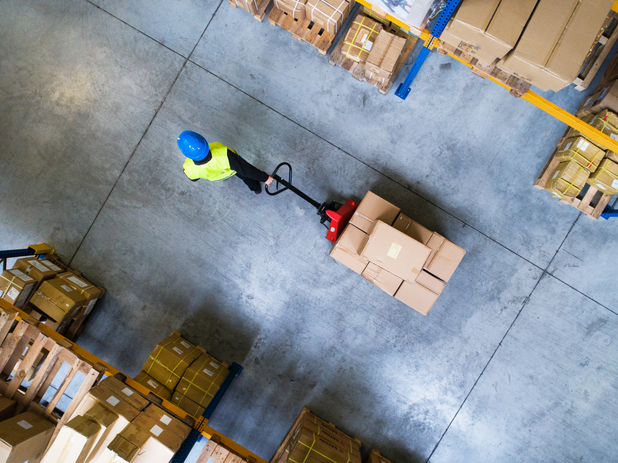
Navigate Freight Shipping: Essential Tips for Success
Here's what you'll find on this page:
If you are new to shipping heavy items or what’s commonly known as freight, tasks like choosing the right service and packaging for shipping can sometimes feel overwhelming. However, don’t let these concerns stand in the way of growing your business.
With the right planning and the right partner, freight shipping can be easy. What’s more, you can have peace of mind your shipment will reach its destination safely and on time.
So, whether you are new to freight shipping or looking to optimize your shipping processes, we’ve compiled essential information on how to ship heavy items hassle-free.
1. How to know if your shipment is classified as freight
To avoid mistakes and delays, it’s essential to understand the difference between parcel and freight shipping, as each has its own unique handling requirements.
What is freight?
FedEx defines freight based on weight and dimension: packages that weigh more than 68kg or measure more than 178cm in height, 302cm in length or 203cm in width are all classified as freight.
In essence, freight refers to heavy or bulk goods transported by land, sea, or air. These can include bulk consumer goods such as laptops, electronics, or packaged food as well as heavier items such as furniture or appliances.



What is the difference between parcel and freight shipping?
Parcel shipping and freight shipping serve different purposes. Parcel shipping typically involves smaller, individual packages that are transported in standardized packaging and move through networks designed for speed and efficiency.
Freight shipping is designed for larger, heavy weight shipments, with businesses able to ship anything from cartons to pallets, and even a full container. . Unlike parcel shipping, freight requires specialized handling equipment and often involves coordination between carriers, warehouses, and freight terminals. Freight shipping also sometimes requires customized solutions to fulfill special needs like temperature control.
2. Understand your freight delivery options
When it comes to freight or heavy weight shipments, there are a variety of delivery options to suit different needs.
For example, freight delivery can be tailored to specific points in the supply chain: door-to-door services manage the entire journey from pickup to final delivery, while door-to-airport, airport-to-airport, and airport-to-door split the journey based on business needs.
With airport-to-airport shipping, businesses don’t have to worry about meeting the cut-off time of local courier services but can instead take shipments direct to the airport themselves. Airport-to-airport shipping also allows recipients to arrange pick up of several shipments at airport at once.
For optimal flexibility, FedEx allows all four types of freight delivery. Customers using FedEx Ship Manager™ at fedex.com can make their selection by specifying whether they would like their shipment “hold at location” or by selecting a drop-off location for the shipment.
When considering your freight delivery options, it is important to understand the scope of what each provider offers and what services are included in the cost of shipment or are considered ancillary. For example, freight forwarders Freight forwarders do not own or operate transportation assets and depend on carriers for the actual transportation of goods. They may also charge for last-mile delivery as opposed to providers who own their own fleets and provide freight and last-mile delivery transport themselves
What is freight forwarding?
Freight forwarding organizes the transport of goods directly from a manufacturer to the final distribution point. Freight forwarders don’t do the transporting – they arrange domestic and international cargo transports with multiple freight carriers.
3. How to choose the best freight delivery service for your needs
Selecting the right freight delivery service is crucial for optimizing shipping for your business. Here are several key factors to consider:
Reliability
Reliability is one of the most important aspects of any freight service, helping to ensure items are delivered on time and in the condition they were shipped.
Day or time-definite delivery
Day or time-definite delivery is critical to maintaining business schedules and customer trust. When choosing a service, ensure the provider offers guaranteed timelines and has a proven reputation.
What is day-definite shipping?
Day-definite shipping allows you to know what day your shipment is scheduled to arrive before you ship.
Speed
For those with time-sensitive or perishable shipments, it is important to choose a provider that offers priority express in addition to day or time-definite delivery.
Freight tracking and transparency
Freight tracking and transparency are essential for peace of mind throughout the shipping process. Look for providers that offer near real-time freight tracking, so you can monitor your shipment’s progress and take action if issues arise.
Dangerous goods shipping and other requirements
Shipping items such as dangerous goods or temperature-sensitive products requires extra care. Choosing a provider with experience in handling these types of freight can help when it comes to processes like customs clearance.
Documentation and customs clearance
When shipping internationally, correct documentation and customs clearance are crucial to avoid delays. Choosing a freight service that provides digital documentation and facilitates customs clearance can save you time and reduce risk of errors that could lead to delays.
Cost
While many businesses prioritize reliability over cost, it is still a consideration. One way to manage costs is by working with a single supplier who provides discounts based on volume or contractual discounts for new accounts.
Value-added services
Post-sales support and value-added services like the creation of air waybills on your behalf, proactive monitoring and intervention, and customized reporting can save you time and provide added convenience. Choosing a provider that offers these services can help you streamline your operations and further focus on growing your business.
Need a consultation on your upcoming freight or heavy weight shipment?
Whether you are a new or existing customer, you can use our online form to tell us about your shipping needs and one of our team will get in touch.
4. How to pack heavy items for shipping
When you ship a large item, especially one that’s over 68kg it can face a lot of challenges in transit. From the time you pack your shipment to the time it arrives at its destination, it could be transported with forklifts, conveyor belts, planes, trains, and trucks. It could encounter significant temperature variations.
And while some providers offer non-stackable freight solutions for a surcharge, freight can sometimes be stacked on top of—or under—other shipments. Careful packing will help ensure your shipment can withstand these factors and give you peace of mind.



Tips for packaging for sending:
Palletize your shipment.
Pack freight shipments on a pallet to ensure handling efficiency and reduce package damage.
Include a packing base.
Use a handling base to maintain package orientation, efficiency, safety, and protection. This could be a pallet or skid.
Use protective packaging:
Use cushioning, bracing, or wrapping to secure items and protect against shock and vibration during the shipping process.
Freight packing terms
| Palletize | Palletizing is the process of stacking items onto a pallet for shipping purposes. Cargo is arranged on the pallet and secured for stability, sometimes involving stacking multiple pallets on top of each other. |
| Skids and pallets | A skid is defined as a handling platform without bottom deck boards, and a pallet is defined as a handling platform with bottom deck boards. |
| Freight boxes | Also called bulk bins, cargo boxes, or bulk containers, freight boxes are larger and sturdier than standard shipping boxes. They can be made of corrugated cardboard, wood, or plastic, and they come in different sizes to accommodate a lot of different products. |
5. Ship your heavy items with confidence



Choosing the right freight delivery service is more than just a logistical decision—it’s about ensuring confidence and certainty for your business.
Making the decision based on factors like reliability, day-definite delivery, and freight tracking and transparency, will give you peace of mind so you can focus on growing your business.
At FedEx, your safe and seamless freight shipping is our goal and we provide a one-stop-shop for your needs. With the world’s largest air-and-ground network, we also provide extensive coverage and unparalleled speed with definite time and date delivery.
Shipping freight?
Whether your priority is speed and reliability or flexible and efficient pickup and delivery, our international air network and professionals are ready to support your business needs.
More from Small Business Center



Shipping heavy items? See the bigger picture
Use this list of tips to overcome cross-border logistics challenges of shipping heavy items.



Confidently navigate customs clearance
Got a problem with Customs? Discover the smarter way to navigate customs clearance.